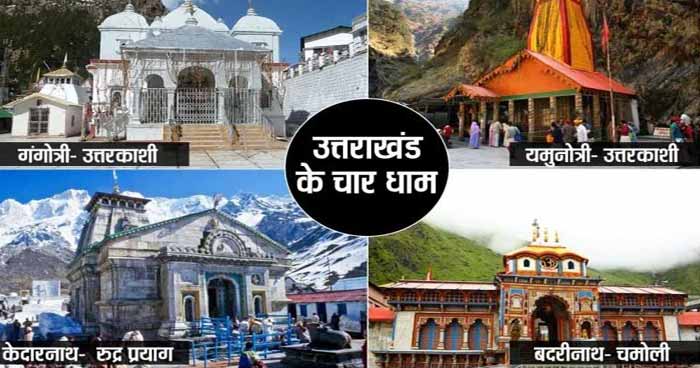Tour Duration: 07 Nights – 08 Days
Travel Destinations: Delhi – Hardwar – Joshimath – Badrinath – Hemkund Saheb – Rudraprayag – Haridwar – Delhi
Day 01 : Arrival Delhi – Haridwar (205 kms. 6 hrs. drive)
Upon arrival meeting and assistance followed by drive to Haridwar. Upon arrival check at Hotel. Evening aarti at Har ki peri. Overnight stay at hotel.
Haridwar : Haridwar, lying at the feet of Shiva’s hills, i.e., Shivaliks, in the Haridwar district of Uttaranchal Pradesh, is a doorway. Suryavanshi prince Bhagirath performed penance here to salvage the souls of his ancestors who had perished due to the curse of sage Kapila. The penance was answered and the river Ganga trickled forth forms Lord Shiva’s locks and its bountiful water revived the sixty thousand sons of king Sagara. In the traditional of Bhagirath, devout Hindus stand in the sacred waters here, praying for salvation of their departed elder. It is doorway to the sources of the Ganga and the Yamuna, 3000 to 4500 meters up into the snowy ranges of the central Himalayas. The ‘Aarti’ worship of the Ganga after sunset and the floating ‘dia’ (lamp) is a moving ritual.
Day 02 : Haridwar – Joshimath (275 Kms.)
Morning drive to Joshimath, en-route visit Rishikesh. Upon arrival Joshimath check in at the Hotel. Overnight stay at hotel.
Joshimath : The name Joshimath is a distorted version of the Sanskrit word ‘Jyotirmath’, the place of the Jyotirlinga of Shiva. It is believed that sage Shankracharya established one of the four piths (centers) for sanyasis at this place. Joshimath falls on the way to Badrinath and it is believed that lord Vishnu resides at this place in the winters.
Day 03 : Joshimath – Badrinath (45 Kms)
Morning Pooja and Darshan of Adi Sankracharya Samadhi and Sri Narsingh Mandir at Joshimath and drive to Sri Badrinath. On arrival check in at the Hotel. Afternoon visits temple, Mana Village, Byas Gufa, Ganesh Gufa, Saraswati and Saraswati River. Overnight stay at Hotel.
Badrinath : One of the ‘Four Dhams’ is one of the most celebrated pilgrimage spots of the country and is situated at an elevation of 3,133 meters, guarded on either side by the two mountain ranges known as Nar & Narayan with the towering Neelkanth Peak providing a splendid backdrop. This revered spot was once carpeted with wild berries. Thus the place got the name “Badri van”, meaning “forest of berries”.
Day 04 : Badrinath – Govindghat – Ghangaria (23 Kms drive + 14 kms trek)
Morning drive to Govindghat. Upon arrival Govindghat stat trek towards Ghangaria. Evening arrival Ghangaria check in at Hotel or Camp for overnight stay.
Day 05 : Ghangaria – Hemkund Saheb – Ghangaria (5 kms trek per way)
Morning stat trek towards Hemkund Saheb. On arrival take a holi dip in Hemkund. After a holi darshan trek down to Ghangaria for overnight stay.
Hemkund Sahib :The high altitude Lokpal lake, known as Hemkund ( 4329 mts.) liesin heavenly environs. A steep trek from Ghangharia leads one to this spot in about four to six hours.
It is an important pilgrimage for both Hindus and Sikhs, as well as for people from other faiths. There is a Sikh Gurudwara and a Lakshman temple built on the bank of the lake. Encircled by seven snow clad peaks and their associated glaciers, it reflects its surroundings enchantingly on its crystal clear serene waters. The glaciers from Hathi Parvat and Saptrishi peaks feed the lake and a small stream called Himganga flows out of this lake. As alluded to, in the holy Granth Sahib, Guru Govind Singh, the tenth Guru of the Sikh faith had meditated on the bank of this lake in one of his earlier births. It is widely believed among Sikhs that Guru Govind Singh introduced the features now universally associated with Sikhism. On 15th April 1699, he started the new brotherhood called the Khalsa (meaning the pure, from the Persian word ‘Khales’) an inner core of the faithful, accepted by baptism (amrit). The five K’s’ date from this period: kesh (uncut hair) kangha (comb), kirpan (dagger or short sword), kara (steel bangle), and kachh (boxer shorts). The most important is the uncut hair, adopted before the other four. The comb is sometime designated specially as wooden.
Day 06 : Ghangaria – Govindghat – Rudrapryag (14 Kms trek + 132 Kms)
Morning start trek down to Govindghat. On arrival meet to driver and drive to Rudrapryag via Joshimath & Karanprayag. On arrival check-in at hotel. Overnight stay at hotel.
Rudraprayag : It is the confluence of river Mandakini and river Alaknanda.
Temples : Rudranath and Chamunda Devi, Koteshwar Temple (3 Kms).
Day 07 : Rudrapryag – Rishikesh (134)
Morning drive to Rishikesh en-route visit Devprayag. Later drive to Rishikesh on arrival checks in at the hotel. Overnight stay at hotel.
Day 08 : Rishikesh – Delhi – Departure (234 Kms.)
Morning drive to Delhi. On arrival Delhi drop you at Airport / railway station for onward destination.

